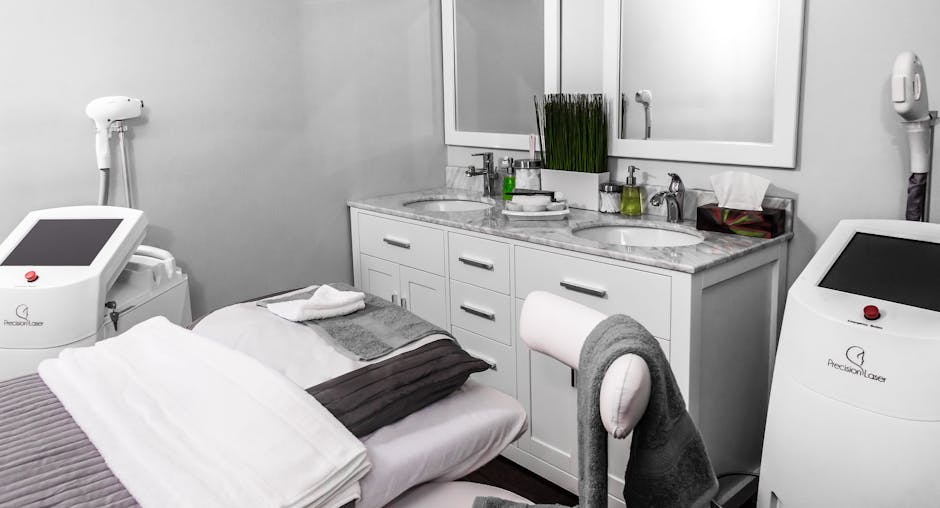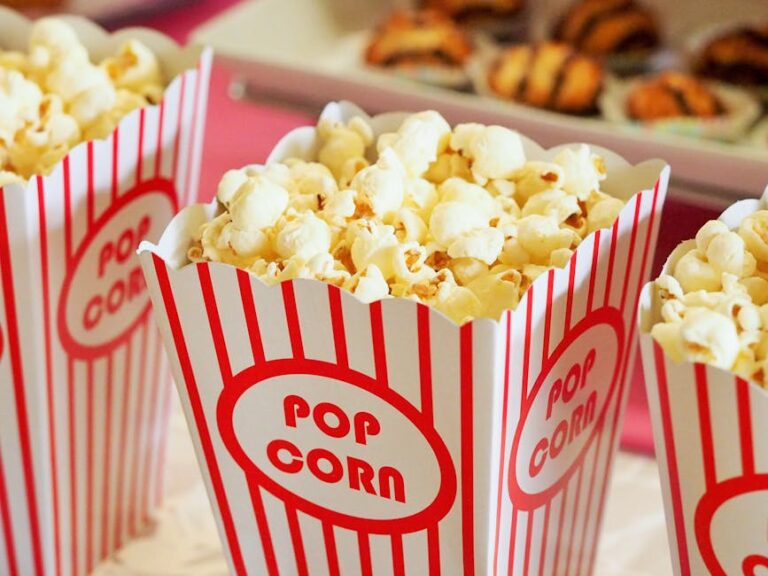Table of Contents
- The Great Sleep Delusion: Five Hours Ain’t Enough, Mate
- The Desk Lunch & Snack Trap: Fuel, Not Just Food
- The Curse of the Chair: Get Up, You Big Lummox
- The Mental Mugging: When Your Brain Won’t Switch Off
- The Doctor Avoidance Maneuver: Just Go, For Pete’s Sake
- The Modern Plague: Information Overload & Constant Connection
- The Bottom Line: It Ain’t Rocket Science, But It Takes Guts
Alright, another year, another batch of “health tips for busy professionals.” Funny, isn’t it? Every single year, same song and dance. You’d think by now, with all the damn apps and gadgets and “wellness gurus” out there, we’d have cracked this code. But nah, here we are in 2025, still burning the candle at both ends, still shoving lukewarm microwave meals down our throats, and still wondering why we feel like a worn-out tyre on a beat-up Ford.
Look, I’ve been around the block a few times, seen a fair few deadlines come and go, and watched good people — sharp as a tack, too — absolutely run themselves into the ground. They start out all fire and brimstone, full of beans, ready to conquer the world. Then the hours pile up, the coffee becomes a main food group, and suddenly, they’re snapping at the intern for using the wrong font. We all know the type, maybe we are the type. It’s a common story, from the glass towers of downtown Sydney to the industrial estates of Dudley, and everywhere in between. This ain’t rocket science, but it’s harder than it sounds when your inbox is a bottomless pit and your phone’s vibrating like a trapped hornet every five minutes.
What I’m not gonna do here is give you some airy-fairy, self-help book nonsense. No “mindfulness journeys” or “optimal performance quadrants.” Just some straight talk, from someone who’s seen it play out more times than I care to count. This isn’t about becoming a super-athlete or a zen master. It’s about not completely falling apart, alright? About staying on the right side of knackered.
The Great Sleep Delusion: Five Hours Ain’t Enough, Mate
Let’s kick this off with sleep. Or the lack of it, more accurately. I hear it all the time, particularly from the sharp-suited types who spend half their lives on a transatlantic flight. “Oh, I only need five hours, I’m good.” Or, “I catch up on weekends.” Bollocks, mate. Pure, unadulterated bollocks. Your body ain’t a battery you can just quick-charge. It’s a complex piece of kit, and it needs its downtime. Trying to run on fumes is like driving from california to New York on a flat tyre; you’ll get there eventually, probably, but you’ll do some serious damage along the way.
I remember a young reporter, full of beans, back in ’08. Thought he was hot stuff working 18-hour days, fueled by cheap coffee and adrenaline. Said he was “optimizing his sleep cycle.” Yeah, right. He ended up flat on his back with stress-induced pneumonia. Lost a few weeks of prime reporting time, not to mention looking like he’d aged a decade. You think that was worth it? Nah.
Is 5 hours of sleep really enough for a busy professional? Someone asked me that just last week, sounded like they were whispering it, half-expecting me to say yes and give them permission to keep sacrificing. My answer then, and now, is a blunt no. For most grown-ups, it just isn’t. You might feel “fine” on five hours for a bit, but your brain ain’t firing on all cylinders, your immune system is taking a hammering, and your temper gets shorter than a Welsh summer holiday. You’re not being efficient; you’re just being short-sighted. Try for seven or eight, proper shut-eye. Dark room, cool temperature, no glowing screens for an hour before bed. Yeah, I know, easier said than done when you’re wired from a late meeting, but what’s the choice? Burnout or functioning human? Your pick.
The Desk Lunch & Snack Trap: Fuel, Not Just Food
Next up: what you shovel down your gullet. The number of times I’ve seen some poor soul hunched over a keyboard, wolfing down a sad-looking sandwich while scrolling through spreadsheets, is just depressing. Or the constant packets of crisps and sugary biscuits that appear like magic when the afternoon slump hits. It’s not food, it’s just fuel, and frankly, it’s the wrong kind of fuel. You wouldn’t put cheap, watered-down petrol in a high-performance car, would you? So why treat your body any different?
But what about my sugar cravings when I’m slammed? I hear this one a lot, usually from folks with a twitch in their eye, reaching for another chocolate bar. Look, your body’s just screaming for a quick energy hit. It’s a simple reaction. But those highs are always followed by crashing lows, leaving you more tired than before. Instead of a sugary fix, grab some proper protein, maybe some nuts, an apple, or a piece of fruit. Keep a bag of mixed nuts or some dried fruit in your desk drawer, that’s what I do. It ain’t glamorous, but it works a treat. I once saw a bloke from Northumberland, always had a small tub of olives in his desk, said they kept him sharp and stopped him raiding the vending machine. Might be worth a try, eh?
Prep Your Grub, Save Your Sanity
This bit always gets a groan, but it’s simple common sense: plan your meals. A bit of foresight goes a long way. Spend an hour on a Sunday afternoon sorting out some lunches for the week. Batch cook a big pot of soup, make a massive salad with some grilled chicken, or roast some vegetables. Stick it in containers, job done. This isn’t about being a gourmet chef; it’s about avoiding the panic grab from the nearest greasy spoon, or the highly processed ready meal that tastes like cardboard and offers nothing but regret.
I remember my wife, bless her heart, used to be a proper disaster with food when she was working mad hours. She’d come home absolutely famished, then order some takeaway rubbish. She was always tired, always a bit rundown. Then she started this thing where she’d cook up a storm on a Sunday, just a simple stew or a big chilli, and suddenly, come Monday night, there was something decent in the fridge. Saved her a fortune, too, not just in cash but in energy. It’s a small adjustment that makes a surprising difference, trust me.
The Curse of the Chair: Get Up, You Big Lummox
Let’s be honest, most of you reading this are probably parked on your backside right now. That chair, that comfy, ergonomic-sounding chair, is a killer. It’s slowly turning you into a slumped-over question mark. Our bodies are built for movement, not for static hours in front of a glowy rectangle. You see these folks, glued to their chairs for eight, ten, twelve hours. Their backs are hunched, their shoulders are up by their ears. It’s a pathetic sight, really.
You don’t need to sign up for a marathon tomorrow, or even hit the gym. Just move. Stand up every hour. Walk to the printer that’s a bit further away. Take the stairs instead of the lift. Go outside for five minutes, get some fresh air, stretch your legs. Even a wee wander round the block at lunchtime can clear your head and get the blood flowing. My old editor, a grizzled Scotsman from Glasgow, swore by a 15-minute brisk walk every lunch. Said it “cleared the cobwebs” and stopped him turning into a “pure dead zombie.” He lived to be 92, still sharp as a tack. Might be something to that, eh?
Short Bursts, Big Payoffs
No time for a full workout? Welcome to the club. But that’s no excuse for doing nothing. Twenty minutes, three times a week. Can you manage that? A quick online session, some bodyweight exercises, a jog around the park. It doesn’t have to be some gruelling session that leaves you barely able to walk. Just enough to get your heart rate up and break a sweat. It helps with stress, it helps with sleep, it helps with everything, really. Even a quick ten-minute blast of something high-intensity, you know, some jumping jacks, burpees, star jumps, whatever the kids are calling it these days, can make a difference. It’s about building habits, not becoming an Olympian.
The Mental Mugging: When Your Brain Won’t Switch Off
This one’s a proper silent killer. You can eat right, sleep right, even move a bit, but if your head’s spinning like a washing machine full of rocks, you’re still in trouble. The constant notifications, the always-on culture, the feeling that you should be doing something, even when you’re not. It’s a mental mugging. Your brain needs a break, proper downtime, not just scrolling through social media.
How do I even switch off when my boss messages at midnight? This is a fair question, and one I’ve fielded from more than one stressed-out intern. First off, put boundaries in place. That phone is a tool, not an extension of your arm. Turn off notifications after a certain hour. Put it in another room at night. If your boss is messaging you at midnight, that’s their problem, not yours. You’re not a brain surgeon on call. Unless you actually are a brain surgeon, in which case, fair play, carry on. But for the rest of us, it’s not an emergency.
I had a colleague, lived down in Worcestershire, used to get himself in a right state every evening, constantly checking his emails. He swore he needed to be “responsive.” Ended up with chronic anxiety. Took him six months to sort himself out. He learned, eventually, that the world wouldn’t end if he didn’t reply to an email at 11 pm. He started leaving his phone downstairs, even got an old-fashioned alarm clock. Said it was “bostin'” for his peace of mind. Sometimes the old ways are the best ways.
Unplugging: Easier Said Than Done, But Necessary
Find something that takes your mind off work. Something completely unrelated. Read a physical book, not on a screen. Listen to music. Learn an instrument. Go for a walk in the countryside, really look at the trees and the sky, not your phone. Spend proper time with your family or friends, where the conversation isn’t about deadlines or clients. These little escapes, these moments of actual disconnection, are more important than you probably realise. They let your brain defrag, clear out the junk, and come back fresh. Or, at least, less clogged.
The Doctor Avoidance Maneuver: Just Go, For Pete’s Sake
It’s astonishing how many busy people skip regular check-ups. They’ll service their car, get their boiler looked at, but their own bodies? Nah, “no time for that.” They wait until something’s really gone wrong, until they’re in actual pain or can barely function, before they even consider picking up the phone. This isn’t strength; it’s pure idiocy. You wouldn’t ignore a flashing warning light on your dashboard, would you? Your body gives you signals all the time. Listen to them.
Regular blood tests, check-ups, even a quick chat with your GP if something feels off. It’s preventative maintenance. Catching something early is always, always easier to deal with than letting it fester into a full-blown crisis. I’ve seen some proper strong, healthy-looking blokes from Texas just ignore nagging pains, thinking they could just “tough it out.” One fella, a big, strapping chap, ended up in hospital with something easily treatable if he’d gone to the doctor a month earlier. Don’t be that fella. Don’t be the one who thinks they’re invincible. You’re not. No one is.
The Annual MOT: Don’t Skip It
Think of your yearly check-up like an MOT for your body. It’s just good sense. A lot of the subtle things that can creep up on you—blood pressure, cholesterol, early signs of diabetes—don’t have glaring symptoms until they’re a real problem. A quick visit to the doc, a few tests, and you know where you stand. And if something is brewing, you’ve got a chance to head it off at the pass. It’s an hour, maybe two, out of your year. You spend more time than that arguing with your internet provider. Get it done.
The Modern Plague: Information Overload & Constant Connection
This touches on mental health but deserves its own shout. We’re living in an age where the news cycle never stops, notifications ping all hours, and the world’s problems are beamed directly into our pockets. It’s draining. Constantly consuming information, much of it negative, without any real processing time, is like trying to drink from a firehose. You get drenched, but you don’t actually get hydrated.
Learn to filter. Choose your news sources carefully. Don’t feel obliged to read every single email or respond to every message the second it lands. Create designated “unplug” times. Your brain isn’t designed to be constantly stimulated. It needs quiet. It needs boredom, even. That’s when real thought, real creativity, sometimes even real peace, happens.
I had a mate in Cardiff, good bloke, but he was always plugged in. Every single conversation, his phone was buzzing on the table. Every quiet moment, he was scrolling. He looked absolutely knackered, constantly tired, constantly on edge. Eventually, his missus put her foot down. Forced him to leave his phone at the door when he got home. Took him a while to adjust, said it felt “weird,” but within a month, he was sleeping better, less grumpy, and actually present when you talked to him. It’s a bit like weaning a baby off a dummy, painful at first, but worth it in the end.
The Bottom Line: It Ain’t Rocket Science, But It Takes Guts
So there you have it. No magic pills, no secret formulas. It all boils down to a few basic things that people have known for centuries, but seem to forget when the pressure’s on. Get some bloody sleep. Eat something decent. Move your backside. Give your head a rest. And for crying out loud, go see a doctor when you need to.
It’s not about perfection; it’s about persistence. It’s about making a conscious choice, every single day, to put yourself on the priority list. Because if you burn out, if you fall apart, if you end up sick or exhausted or both, you’re no good to anyone, least of all yourself. Your work will suffer, your relationships will suffer, and your life, frankly, will just be a miserable slog.
It takes guts to say no, to switch off, to carve out time for yourself when the world seems to demand every ounce of your energy. But trust me, it’s the smartest investment you can make. The world will keep spinning without your immediate attention for an hour or two. You’re not that important, and neither am I. And that, funnily enough, is what makes it all possible. Now go on, clear your head.












